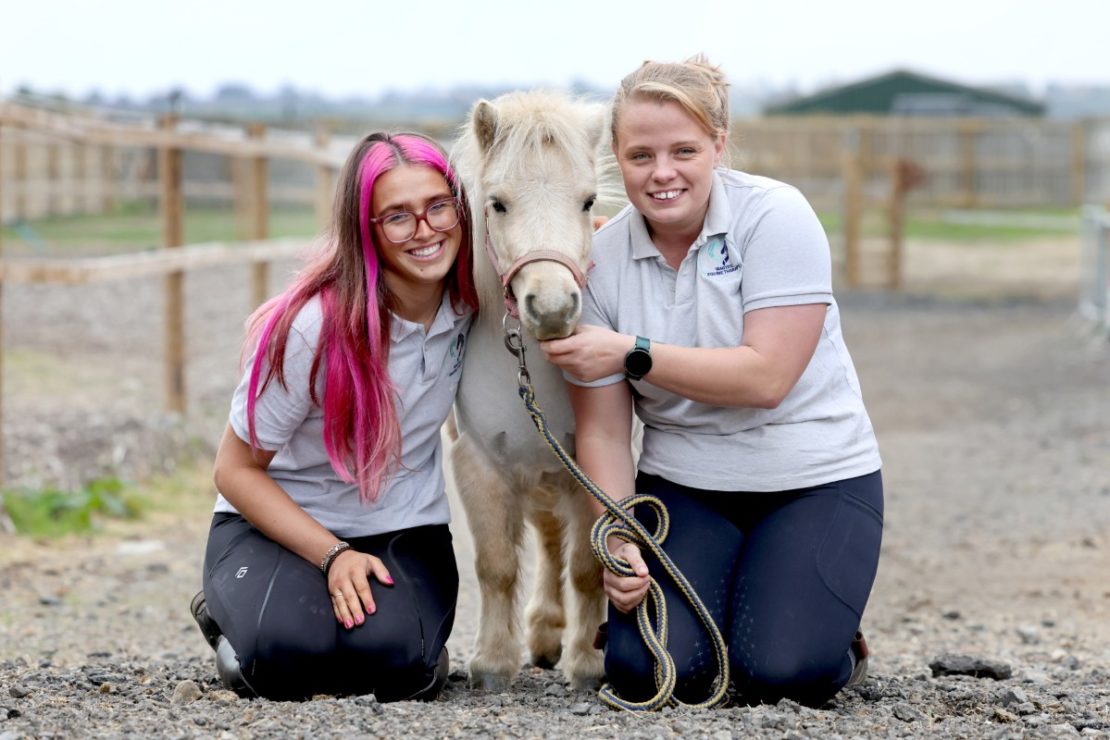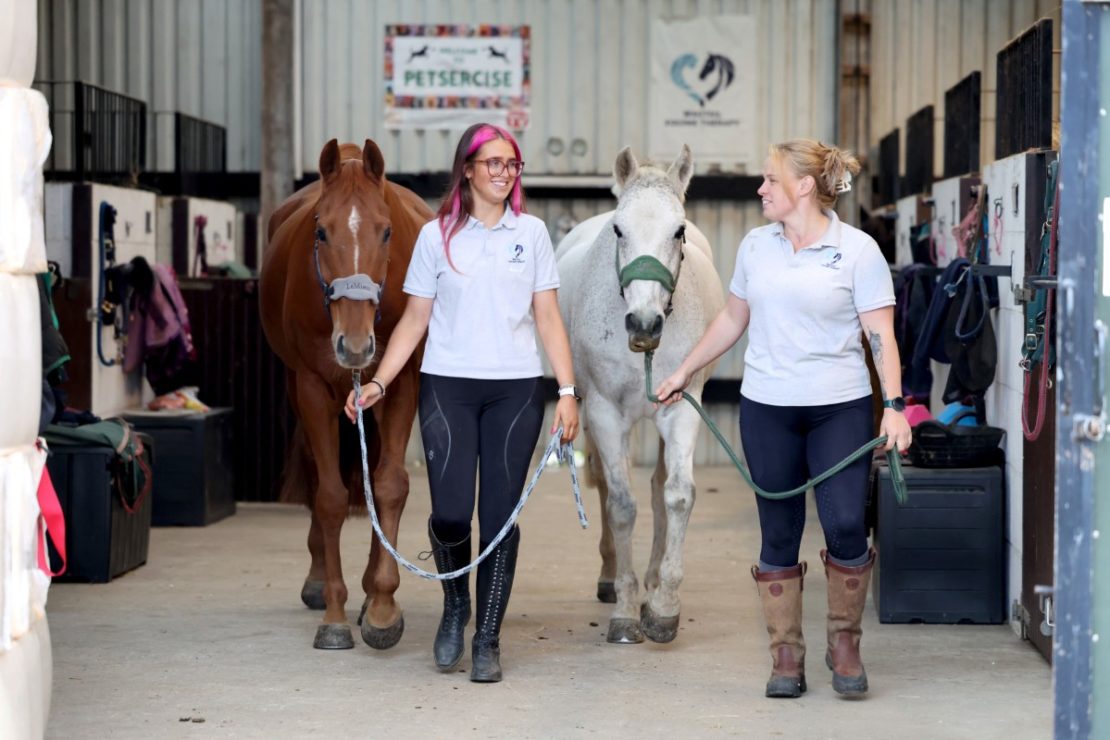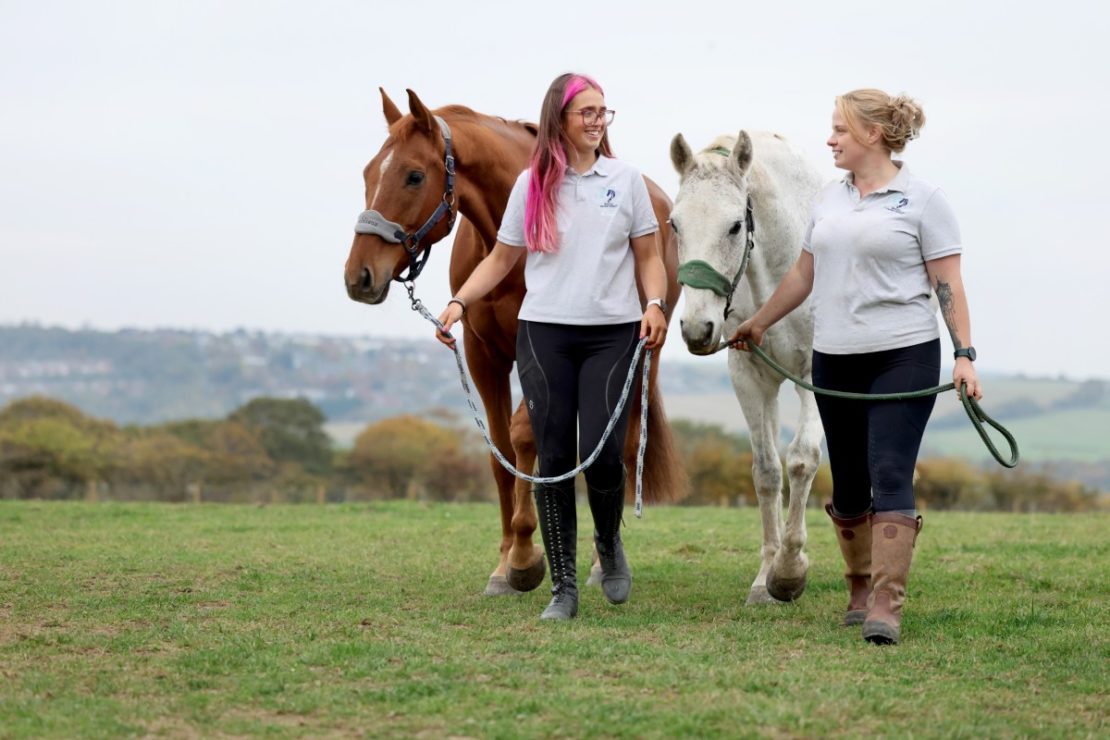
Breaking barriers to healing with horses
- From a Facebook post to a thriving start-up in just weeks
- Friends come together to share the healing power of horses
- Social enterprise structure means equine therapy is no longer for the privileged few
A socially-driven start-up is transforming access to mental health support in County Durham – breaking down barriers to healing with horses.
By combining evidence-based therapeutic practice with the unique connection between humans and horses, Wagtail Equine Therapy CIC aims to redefine the way people experience emotional healing and personal growth.
And by structuring their business as a not-for-profit organisation, its directors aim to make equine therapy accessible to those who might otherwise never have the opportunity.
At the heart of Wagtail’s work is a deep understanding of how horses can support people’s recovery, resilience, and wellbeing.
“I understood that horses could play a vital role in personal growth, recovery and resilience, especially for people who are often overlooked, like those with autism, learning difficulties, or trauma,” explains Founder and Director Mollie McIlvaney, a trained mental health practitioner.
“Horses don’t judge. They respond to emotion, energy and presence. That connection can help people feel seen, safe and understood in a way that words sometimes can’t.”
Mollie’s own life changing experience with her first horse Jack sewed the first seeds for what would eventually become Wagtail.
“Jack became my lifeline,” Mollie says. “He came into my life when I was 13, at a time when I was struggling with school, bullying, confidence and my mental health.
“Through him I found purpose, responsibility, and a deep emotional bond that helped me begin to heal and reconnect with the support around me. I honestly don’t think I’d be here today without Jack.”
It was a chance Facebook post offering space to run an equine therapy centre at Wagtail Farm in Stanley that turned vision into reality. Within weeks of spotting the advert, founders and friends Mollie Mcilvaney, Lauren Saunders and Rosie Charlton came together – united by a shared belief in the healing powers of horses.

With backgrounds in psychology, mental health, equine care and law, they set out to build an inclusive and affordable service for the local community.
Together, with the support of the North East BIC social enterprise advisers Michelle Brunton and Anthony McDermott they launched Wagtail Equine Therapy CIC in May this year and now they’re on a mission to reach as many people as possible with their services.
Wagtail’s social enterprise structure means every penny earned is reinvested into expanding its services and supporting those most in need. Determined to make the business sustainable, its founders turned to the BIC’s dedicated social enterprise team for guidance and received support via the Durham Boost and Durham Start Up’s service, which is targeted at helping social entrepreneurs in County Durham to make their community-focused ideas a success.
“Our experience with the BIC has been excellent,” Mollie says. “They’ve helped us navigate every potential stumbling block – from setting up the community interest company structure to identifying funding opportunities. We got up and running much faster than I imagined we could because of that expert guidance.
“Their support gave us not only the practical tools to shape and grow the business, but also the confidence to believe in our vision. It truly feels like we are building the business with a strong team behind us.”
With help from the BIC, the team secured initial grant funding, allowing them to deliver affordable, inclusive therapy sessions to young people and adults via their herd of seven therapy horses.

“Sadly, for most people, spending time with horses just isn’t an option,” says Mollie. “The cost, lack of local facilities, or physical and practical challenges can make it feel out of reach. That’s where we come in. As a social enterprise we can make sure the healing power of horses isn’t just for a privileged few.”
Wagtail’s team now delivers a range of services including one-to-one therapy sessions, family bonding experiences, school programmes, and wellbeing workshops – all underpinned by a psychology-led framework. Each session is designed to be fully accessibly, ensuring that people of all abilities and backgrounds can benefit from the calming and empowering connection with horses.
The Wagtail team has already seen participants rediscover confidence, rebuild trust, and reconnect with themselves and others, and says its safe, non-judgemental space means growth happens naturally, often in ways that words alone can’t achieve.
Looking ahead, Wagtail Equine Therapy CIC aims to develop a purpose-built facility at Wagtail Farm, and expand to community outreaching, as well as offering more funded places for individuals and groups who would most benefit.
“Our vision is simple,” says Mollie. “To make equine therapy accessible, inclusive, and sustainable, because everyone deserves the chance to heal, grow, and connect.
“Every time I see someone connect with a horse and begin to rediscover hope or confidence, it reminds me why I kept going and why this work matters so much.”
Anthony McDermott, social enterprise adviser at the North East BIC, said: “Working with Mollie has been a real privilege. She brings an incredible mix of passion, lived experience, and professionalism to Wagtail Equine Therapy CIC and it’s clear to me that this venture comes from the heart.
“In just a few months she has shown real resilience and determination, quickly turning her vision into reality. I’m confident her drive and commitment to accessibility will make Wagtail a real asset to the community. I can’t wait to follow her journey!”
Social Enterprise Durham Boost is one of the pilot initiatives being delivered across England, funded by the Department for Culture, Media and Sport, to help stimulate social entrepreneurship in target areas. Durham Start Ups Service (Part of the Enterprising Durham Framework) is is funded by the UK Government through the UK Shared Prosperity Fund to help accelerate business start up in the area. Both programmes are funded until March 2026.